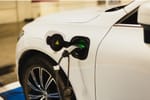Electric vehicles are growing in popularity, not only because they’re better for the environment but also because they can save you money on fuel and maintenance costs.
However, some people are hesitant to invest because electric vehicles are often priced higher than traditional gasoline-powered cars.
But fear not, there are ways to save money when purchasing an electric vehicle.
We’ve compiled a list of 10 tips to help you save money on your electric vehicle purchase.
1)) Research Incentives And Rebates
Many states and local governments offer incentives and rebates for purchasing an electric vehicle.
Some automakers, like Tesla, also offer incentives. Do your research to see which incentives apply to you.
Tips for Researching Incentives and Rebates:
- Utilize Online Resources: There are numerous websites and online forums dedicated to electric vehicle owners and enthusiasts. These platforms often contain up-to-date information on available incentives and rebates for different models and locations.
- Contact Local Government Agencies: Check with your state's energy office or environmental department. They can provide detailed information about state and local incentives that may not be widely advertised.
- Reach Out to Manufacturers: Don't hesitate to contact the automaker directly. They can provide specific information about manufacturer incentives and rebates for their electric vehicle models.
Researching incentives and rebates is a key strategy for saving money when purchasing an electric vehicle.
Whether exploring online resources, consulting with local government agencies, or contacting automakers directly, ensure you're updated on all the potential savings opportunities.
Every saving counts and contributes to making your electric vehicle a cost-effective investment.
2)) Consider Used Or Certified Pre-Owned
Electric vehicles that are slightly used or certified pre-owned can cost significantly less than brand-new models.
Plus, you still get the benefits of owning an electric vehicle.
Tips for Considering Used or Certified Pre-Owned Electric Vehicles:
- Check Vehicle History Report: When buying a used or certified pre-owned electric vehicle, always check the vehicle history report. This will provide you with details about the vehicle's past, such as any accidents, recalls, or maintenance issues.
- Inspect the Battery Health: The battery is a vital component of an electric vehicle. Verify the condition of the battery and its lifespan. Some manufacturers provide a battery health report, so be sure to request this.
- Consult a Trusted Mechanic: Before finalizing the purchase, take the vehicle to a trusted mechanic for a thorough inspection. They can identify any potential issues that might not be immediately apparent.
Considering used or certified pre-owned electric vehicles can be a financially savvy choice.
You can confidently invest in a used electric vehicle by ensuring a thorough vehicle history check, inspecting the battery's health, and consulting a trusted mechanic.
A well-maintained used EV can offer the same benefits as a new one but at a significantly lower cost.
3)) Check Manufacturer Warranties
Some electric vehicle manufacturers offer longer warranties or major component warranties.
This could save you a significant amount of money in the long run.
Tips for Checking Manufacturer Warranties:
- Understand the Coverage: Different manufacturers offer different warranty coverage. Some cover the entire vehicle, while others may cover only specific parts like the battery or motor. Ensure you understand what the warranty covers before purchasing.
- Read the Fine Print: Warranties often have exceptions and exclusions. Make sure to read all the terms and conditions to understand what is and isn't covered.
- Consider Extended Warranties: Some manufacturers or dealerships offer extended warranties for an additional cost. Depending on the terms, these might be worth considering to maximize your peace of mind and potential savings.
Ultimately, checking manufacturers' warranties is a vital step in the electric vehicle purchasing process.
Understanding what the warranty covers, reading the fine print for any exclusions, and considering extended warranties can provide significant long-term savings.
A comprehensive warranty not only provides financial security but also reinforces your trust in the manufacturer's commitment to quality and durability.
4)) Shop Around
Don't just buy the first electric vehicle you see. Check online, visit multiple dealerships, and compare prices and features before making a final decision.
Tips for Shopping Around for Electric Vehicles:
- Compare Different Models: Don't limit yourself to one specific model or brand. Explore various options, and compare their features, price, range, and overall performance. Different models cater to different needs, so find the one that matches yours.
- Use Online Comparison Tools: Many online platforms offer tools for comparing different electric vehicle models. These tools can help you understand the pros and cons of each option, making your decision-making process easier.
- Negotiate the Price: Prices at dealerships are often negotiable. Don't hesitate to discuss the price and negotiate a deal that suits your budget. Even a small price reduction can lead to significant savings over time.
Shopping around is a crucial step in purchasing an electric vehicle.
By comparing different models, utilizing online comparison tools, and negotiating the price, you can find an electric vehicle that fits both your needs and your budget.
Investing time in research and comparisons can lead to significant savings and satisfaction in your final choice.
5)) Leasing Might Be More Affordable
Electric vehicles can be pricey, but leasing can make them more affordable. Be sure to compare the costs of leasing versus buying before making a final decision.
Tips for Considering Leasing an Electric Vehicle:
- Understand the Lease Terms: Leasing contracts can be complex. Be sure to fully understand the lease terms, including mileage limits, duration, and what occurs at the end of the lease term. It's important to ensure the terms align with your usage and financial expectations.
- Compare Lease to Purchase Costs: Before deciding to lease, compare the total cost of leasing to the cost of purchasing the vehicle outright. Consider factors such as down payments, monthly payments, and potential end-of-lease costs.
- Check for Lease Specials: Dealerships often provide special lease offers, especially for electric vehicles. Keep an eye out for these promotions, as they can significantly reduce the cost of leasing. Read all the details of the offer to ensure it's beneficial in your situation.
Leasing an electric vehicle can indeed be a more affordable option for many.
By comprehending the lease terms, comparing the costs of leasing versus buying, and keeping an eye out for special lease deals, you can potentially save significant money.
However, it's crucial to take a holistic view of your financial situation, driving habits and plans to ensure that leasing is the right choice for you.
6)) Evaluate Your Driving Habits
Where you live and how much you drive can affect the cost of your electric vehicle.
Evaluate your driving habits to determine the type of electric vehicle that would be most cost-effective for you.
Tips for Evaluating Your Driving Habits:
- Track Your Mileage: Keep track of your daily or weekly mileage. This can help you estimate the range you need in an electric vehicle and make an informed decision based on your driving habits.
- Consider Your Regular Routes: Are your regular routes primarily city driving, highway driving, or a combination of both? Understanding this can help you choose a vehicle with suitable efficiency and performance characteristics.
- Factor in Charging Opportunities: If you drive long distances regularly, consider the availability of charging stations along your route. This can help ensure that your electric vehicle suits your driving habits and lifestyle.
Evaluating your driving habits is an essential step in selecting the perfect electric vehicle.
By tracking your mileage, understanding your regular routes, and considering charging opportunities, you can choose a vehicle that efficiently accommodates your lifestyle.
An electric vehicle that aligns well with your driving habits can enhance your driving experience while maximizing the benefits of going electric.
7)) Plan For The Future
As technology improves, so do electric vehicles. Look for models that have the potential to get software and hardware updates.
You will be able to enjoy the latest features without purchasing a new vehicle.
Tips for Future-Proofing Your Electric Vehicle Purchase:
- Look for Updatable Software: Choose a vehicle that offers over-the-air software updates. This feature allows your vehicle to get the latest features and improvements without needing a trip to the dealership.
- Consider Hardware Upgradeability: Some electric vehicles are designed with hardware components that can be upgraded in the future. This could potentially extend the life of your vehicle and allow it to stay current with technological advancements.
- Research Future EV Trends: Stay informed about the latest trends and future predictions in the EV market. This knowledge can help guide your purchase decision to ensure you're investing in a vehicle that won't become obsolete in a short period.
Planning for the future is a crucial aspect of purchasing an electric vehicle.
By investing in vehicles that offer updatable software and hardware upgradeability, and staying informed about future EV trends, you guarantee a longer and more efficient lifespan for your car.
It's about not just meeting your present needs, but also ensuring your vehicle remains relevant and efficient in the long run.
8)) Calculate Your Fuel And Maintenance Savings
Electric vehicles can save you a lot of money on fuel and maintenance costs in the long run.
Take the time to calculate how much you’ll save versus a traditional gasoline-powered car.
Tips for Calculating Your Fuel and Maintenance Savings:
- Estimate Your Fuel Savings: Consider the average number of miles you drive daily and calculate your potential fuel savings by comparing the cost of electricity versus gasoline. Electric vehicles are highly efficient and can significantly reduce fuel costs.
- Consider Maintenance Costs: Electric vehicles have fewer moving parts than conventional vehicles, which can lead to lower maintenance costs. Factor in potential savings from fewer oil changes, engine services, and fewer brake replacements due to regenerative braking.
- Use EV Savings Calculators: Some numerous online tools and calculators can help estimate your potential savings when switching to an electric vehicle. These consider aspects like local fuel and electricity prices, typical driving patterns, and the specific vehicle you're considering.
Calculating your potential fuel and maintenance savings is an integral part of considering an electric vehicle.
By estimating your fuel savings, acknowledging potentially lower maintenance costs, and utilizing online EV savings calculators, you can gain a comprehensive understanding of the long-term financial benefits of electric vehicles.
Reducing fuel costs and maintenance expenses, electric vehicles serve as an investment that can potentially save you a significant amount of money over time.
9)) Look For Charging Incentives
Some employers, municipalities, and utility companies offer incentives for EV charging.
Look into these options, especially if you plan on charging your vehicle at home.
Tips for Searching for EV Charging Incentives:
- Research Local Incentives: Many local governments and utility companies offer incentives for electric vehicle owners. This may include subsidies for installing an at-home charging station or reduced rates for electricity used for charging.
- Explore Workplace Charging Options: Some employers provide charging stations at work and offer incentives for employees who drive electric vehicles. Check if your employer has such a program or consider suggesting one.
- Check for Federal and State Incentives: In addition to local incentives, there may also be federal or state incentives for electric vehicle ownership or installation of charging equipment. These incentives can help offset some of the costs associated with owning and charging an electric vehicle.
Exploring available EV charging incentives can significantly offset the costs of owning and operating an electric vehicle.
By researching local, federal, and state incentives, and exploring workplace charging options, you can minimize your expenses while contributing to a more sustainable future.
It's an opportunity to further the benefits of owning an electric vehicle, making it not only an environmentally conscious choice but a financially savvy one as well.
10)) Ask About Referral Programs
Some manufacturers have referral programs that can save you money on your electric vehicle purchase.
Ask your dealership or manufacturer about their referral program.
Tips for Inquiring About EV Referral Programs:
- Directly Ask Your Dealership or Manufacturer: If you're interested in saving money on your EV purchase, don't hesitate to ask your dealership or manufacturer directly about any existing referral programs.
- Research Online: Many manufacturers discuss their referral programs on their websites. Spend time researching online to uncover any potential savings opportunities.
- Join EV Forums or Groups: Online communities, forums, or social media groups for electric vehicle owners often share useful information about various referral programs. Join these platforms to stay updated on potential savings.
Exploring potential referral programs can be a smart way to save on your electric vehicle purchase.
By directly inquiring with your dealership or manufacturer, conducting thorough online research, and participating in EV-centric online communities, you can uncover savings opportunities that you might not have been aware of.
Every little bit helps when it comes to making your EV investment more financially accessible and rewarding.
Conclusion
Transitioning to an electric vehicle involves careful consideration of several factors such as understanding your driving needs, calculating potential savings, looking for charging incentives, and asking about referral programs.
Each step offers a pathway to make your switch to an electric vehicle smoother and more cost-effective.
The key is to be well-informed and proactive in seeking out opportunities to maximize your benefits.
Remember, an electric vehicle is not just a purchase, it's an investment towards a more sustainable and financially rewarding future.
Related Articles and Guides
- How To Choose An Electric Vehicle
- How To Decide If A Hybrid Or Electric Vehicle Is Right For You
- How To Apply For Electric Vehicle Tax Credit
- 10 FAQs About How To Get Tax Credit For Electric Vehicles
- Electric Vehicle Buyers Guide
Are You Looking For The Best EV Charger Installers In Sacramento Ca? Click Here To Get In Touch With An Expert Today!
Download Our Free E-book!








